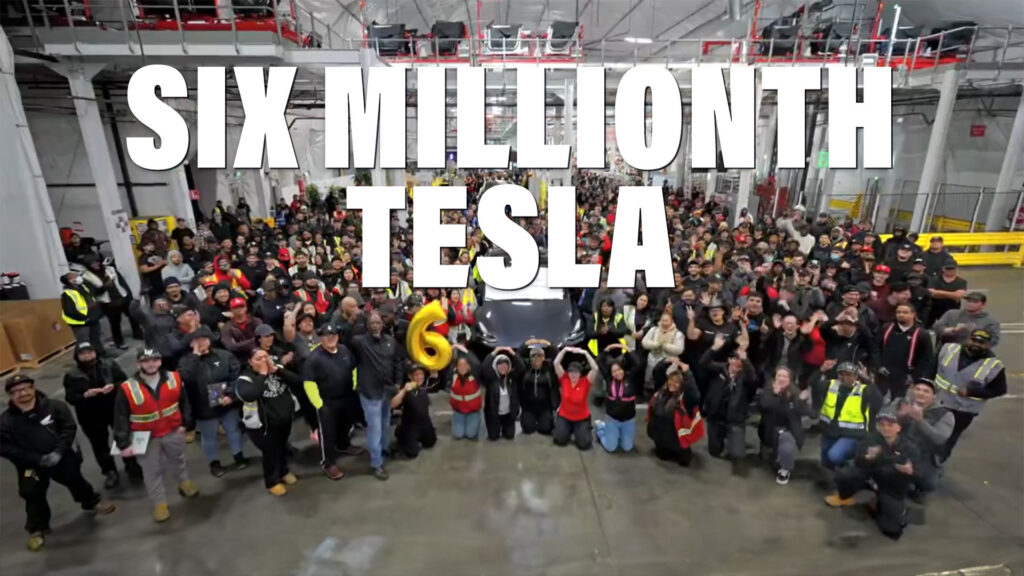The timing comes just six months after it built its five-millionth vehicle
March 30, 2024 at 08:59
 –>
–> 
–>
- Tesla celebrates a landmark achievement, reaching the impressive milestone of 6 million electric vehicles produced.
- The automaker appears to be making fewer vehicles than its capacity would make possible.
- A slow quarter and market pressures could explain the throttled production.
Tesla has reached another milestone, producing six million vehicles, 16 years after launching its first model, the Roadster, in 2008. This achievement marks a significant moment for the electric vehicle manufacturer. However, despite this success, Tesla faces several challenges early in 2024. Interestingly, the timing of the announcement suggests that Tesla may even be throttling its production capacity.
Six million vehicles is far more than any other automaker including new challenger BYD out of China. That brand recently celebrated the production of its seven-millionth plug-in hybrid. The announcement came on X where Tesla also took a moment to thank its owners and teams around the globe.
More: Tesla Faces Worst Quarter Since 2022 As Slow Sales Hit Stock Price
Fittingly, it appears as though that six-millionth vehicle is a Model Y, the best-selling car on the planet. Last year, Tesla sold 1.23 million of them. Back in September of last year, it appeared as though Tesla could hit this six-million mark very early in 2024. It’s a bit of a surprise that it’s taken til late March to hit that goal.
Cybertruck production is supposed to ramp up throughout 2024 and Tesla’s new Model 3 could help the brand increase sales and demand as well. Despite that, the timing appears to indicate that production isn’t hitting the rev-limiter so to speak.
The timing of this announcement suggests that Tesla isn’t simply running at maximum production capacity constantly. It produced its four-millionth car in March of 2023 and its five-millionth car in September of 2023. That signals that production is consistent, despite Tesla saying that it has built additional capacity since March of 2023.
Considering Tesla’s history of selling electric vehicles it no doubt is trying to maximize profit and demand as it forecasts based on market trends. Other automakers like Ford have reduced their production goals and it appears as though Tesla is not operating at full capacity either.
That makes sense given that it just experienced its worst quarter since 2022. No doubt, competition from BYD, plant shutdowns, and slower sales overall contributed to that decline. Despite missing targets, Tesla still saw an 8 percent increase in overall sales during the first quarter.
